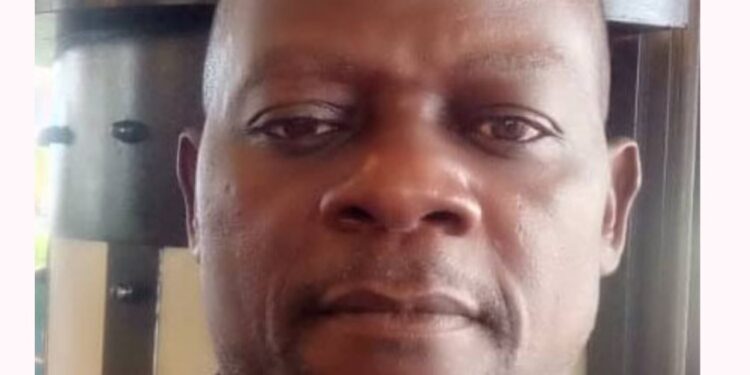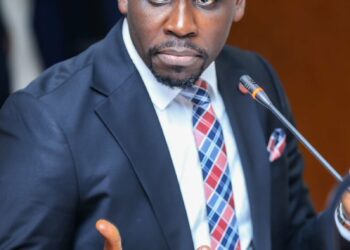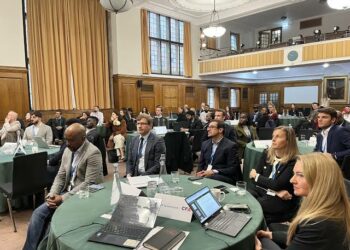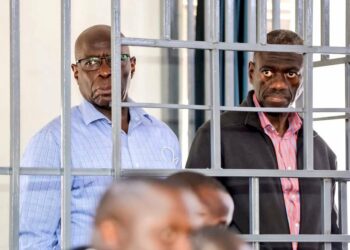Friends, what you’re about to read is part of the series I termed as “Politics of Common sense” which has been running here since last year.
I am challenging conventional wisdom and this time around you won’t like my take on what I am about to talk about.
The topic of today will be about the economic benefits of renting a house as opposed to owning one.
We’ are where we’ are (endemic corruption, building in wetlands, etc) because of the disease called “House ownership” which we literally suck from our mother’s breasts. Should all of us live in houses we have built for ourselves?
Can things like ‘metro’ (public transport) ever work in Uganda where everyone has a bodaboda and others rushes to own a car no matter how rundown?
Has anyone made a research to find out why foreign super markets like Shoprire, Game, Nakumatt, Uchumi, Tuskys, etc, are failing here? Look no further. Every Ugandan with some small ‘kamane’ wants to have an own ‘super market’ most of them selling almost nothing!
This, friends, is the same disease afflicting us where we all think that joining politics is the coolest thing in the country or that we can all vie for the presidential seat. Did anyone mind when a 24 years old boy picked the forms and made a mockery of the 2021 presidential race?
How about having a musician stand as President and nearly floored Africa’s greatest statesman?
There is another crazy idea of starting private schools or churches at every available space. Well, Dar es Salaam has no shopping arcades and Rwanda closed 4,000 churches recently!
My fellow countrymen and women, we’re simply a crazy bunch of humans!
What is the craziest idea we have nowadays? Getting a passport and run out of Uganda for greener pastures.
Of course we shall discuss about the Kiteezi disaster which is a sub-set of the rush to own ‘things’ like houses.
To be honest with you, my reader, I am not a fun of the many realtor companies with their ideas of selling us plots of land. They tout the idea of owning a house as if it is the last human endeavour. And they soon fold after we realise how fake were the products they were selling.
Ugandan various tribes have this thing embedded in their brains that owning a house is the end of the world. If you don’t own a house (built or bought), it is a sign of failure as a human being.
And this is absolutely not true.
Even out of my sleep, I can tell you that building or buying an ‘own’ house has very few economic benefits.
Building one in towns? Not the best idea. Building one in your village even when working or residing around Kampala? Not a clever idea either.
The house you build in a village where you hardly live is a waste of money. At least we all have ancestral homes where we will be returned and buried. No need, absolutely, to be buried far away from your parents.
If you haven’t noticed already, the happiest people in Uganda especially in and around Kampala are not those who own houses, but those renting them.
We all know the story of the people now leading us indeed the class we take as a successful one. None owned a house before 1986 and others (who drive around in range rovers) have no houses.
If you were to make a head count of the people owning houses in Kampala, you will be surprised to find out that majority of those people are actually classified as poor!
So you know, 95% of Kampala dwellers stay in rented homes or in ‘own’ valueless sharks or ghetto homes.
That is why today, the people building apartments for rent are making a kill. Ugandans have realised that building an own house, after all, is not as cool as once thought.
On the surface we think that having built a house is a sign of a stable future. Many will tell you that the house will gain value as time passes.
If I may ask: why build a house if the long-run benefit is for it to gain value and then sell it? How about the next house you want to buy? Hasn’t its value also gone up?
Did you know that your house you build in Kampala is often always a trap the moment you start calculating how much it is worth? How about the laziness it inculcates into you because everytime you look at that agreement or title, you start thinking of visiting a money lender!
From the time we let go of our mother’s breasts, we start turning into unreasonable people. Majority of us in Uganda live our lives upside down like “ebiwundo- bats” therefore having what one would call ‘alternative’ realities.
Look, we wouldn’t have sad situations like Lusanja and now Kiteezi if we really had serious leaders and a knowledgeable society. The twin tragedy in Lusanja and now Kiteezi uncovers stale thinking in our planners and how unserious we long became as a people.
How did we let Lusanja become a runaway ghetto of ramshackle dwellings built for years in swamps? How on earth did we let our people to build their houses on a landfill at Kiteezi? How rotten can the KCCA fellas become before axes are let loose on their necks?
President Museveni said that he passed at Lusanja with his NRA Kadogos in 1986 and there were no dwellings in the wetland. If one may ask: Has the President not passed around that place ever since? At what point did he realise that having people reside in wetlands was dangerous?
I know that he is a very busy person as expected of heads of states. How about the myriad of people he employs to advise him? None of those fellows with ties on never saw ‘Lusanja town’ jutting out in the African sun like a sphinx?
How about Kiteezi where no leader saw the tragedy coming? Is the KCCA and area MP told that your scheme of work was only to fight political battles? Why no one stopped our people from building infront of a heap of garbage?
Some years ago, we took an investor to President Museveni who wanted to make thermo electricity from the Kiteezi dump. The investor had told the president that Kiteezi was a timing bomb which would explode any time.
Did he copy? Of course not. Now it was a landslide (kasasiro slide). Tomorrow it will be an explosion which will leave all of us stunned. Yes dump sites do explode and with devastating consequences. I hear in Ethiopia electricity from “Kasasiro- garbage” helps to supplement the national grid!
The deep-rooted problem of building in wetlands and now on landfills, is the culture of thinking that every person must own a house. Not a rented house but an ‘own’ built house!
What house do you really build on a 40X20 plot of land? Why build a house where you have no car access or a easily reachable route by fire trucks in case of a fire?
This is ridiculous because the people who actually ‘own’ houses in wetlands and at Kiteezi are actually poor people. We should therefore tell our people that having an own house, especially in Kampala, is no guarantee for a settled future.
After this has sunk in, the government and other stakeholders must then move in and construct affordable rentals for the people. This is what countries with a future do.
Canada, the country where everyone wants to live now, majority of the population live in rentals or government apartments. These are highrise flats some as tall as 30 floors and 6 or 10 built on a few acres.
What it means: a Canadian village of 800 people can live on a 4 acres land and in Uganda; they live on a square mile and in dilapidated conditions. And yet Canada has plenty of habitable land.
The land wrangles happening so often in our country is from the pressure of this misuse of land. If the government can build 100 apartment blocks, each apartment housing 60 people, that will amount to 6,000 housing units.
Just to stay in such apartments will not only improve the economic wellbeing of those inhabitants, but, it will make the city look smart and also help improve the health of the inhabitants. How about the infrastructure coming with such modern developments?
Look, I understand the economic situation of Ugandans who build in places like Kiteezi, Lusanja and Kasokoso. I am also aware of the education levels of such slam dwellers. BUT the government can do better for such people. In other countries it is called ‘planning’ for the future.
Uganda today has 50 million people and may be 75 millions by 2050. Anyone thinking of where these additional people will reside or we shall wait and drive them into L. Victoria?
I also know the effects of urban degradation on river systems, wetlands and swamps. Therefore serious governments find alternative ways how to mitigate such effects through sustainable land use.
Sustainable land use does not mean chasing the poor from such areas but finding solutions how the environment can be protected at the same time respecting the dignity of those you are supposedly protecting the environment for.
Tanzania borrowed US$260 million to redevelop Msimbanzi wetland. The people, trees and animals will be able to live together and mutually benefit from each other. This is called ‘co-existing’ where you respect the well-being of the inhabitants of such lands at the same time protect the environment.
I will therefore not ‘tire’ as a Nigerian would say, to tell President Museveni to comprehend fully the really burning issues of the country he leads. His people need houses no matter how poor they’re or the government crying crocodile tears of being insolvent.
Yes we all agree that Uganda is poor. But how many houses can we build annually if the wastage in Parliament or government is checked?
How about getting our priorities right? Why spend on regional hegemonic wars when we have many urgent issues requiring financing here?
BY WAY OF CONCLUSION:
Economists the world over have come to the conclusion that ‘renting’ actually makes more economic sense that buying or building an own house.
Come to think of it. Who is a really smart person? The one who fails to build an own house and often rents habitable homes in areas like Najjera or the one who builds in wetlands or swamps?
Like many Ugandans, I have lived for years outside Uganda and in rented homes. The pressure, often peer pressure, to build an home here is therefore misconceived.
If you can afford to build a 5million house at Kasokoso, then you can also afford a respectable rental of 200k per month in an environmentally friendly place like Makindye. What is lacking really is educating our people about such matters.
Sad that Uganda continues to be a country governed with no laws and the leaders largely unsure of what it is they’re supposed to do for the people.
LAST WORD: “If you don’t know your way out, don’t try to go inside!”
– Robert Mugabe (2016)
Adam kamulegeya
adamkam2003@gmail.com
0779 104 336
Do you have a story in your community or an opinion to share with us: Email us at editorial@watchdoguganda.com












